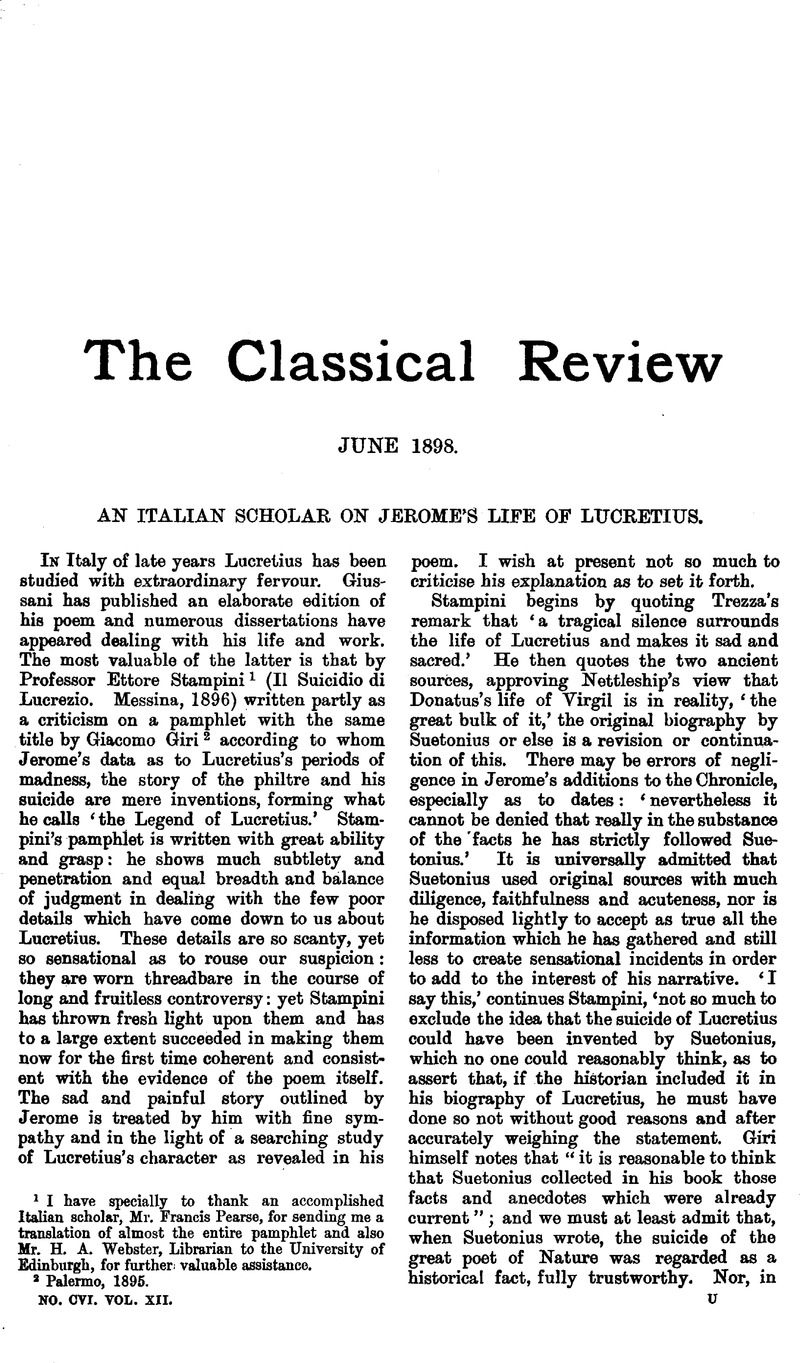Published online by Cambridge University Press: 27 October 2009

page 237 note 1 I have specially to thank an accomplished Italian scholar, Mr. Francis Pearse, for sending me a translation of almost the entire pamphlet and also Mr. H. A. Webster, Librarian to the University of Edinburgh, for further: valuable assistance.
page 237 note 2 Palermo, 1895.
page 238 note 1 In the course of a long passage Cicero says, His rebus mentem vacuam (he has just said that philosophy regards the foolish and thoughtless as insane) appellarunt insaniam : and again, Qui ita sit adfectus, eum dominum esse rerum suarum vetant duodecim tabulae: itaque non est scriptum, Si Insanus, sed Si Furiosus Esoit.
page 238 note 2 Carlo Giussani in the Rivista di fil. Vol. xxiii. p. 427.
page 239 note 1 What the subject of this conclusion would have been, I have tried to show elsewhere (‘ The Atomic Theory of Lucretius.’ p. 168).
page 240 note 1 Roman Poets of the Republic. 1881. p. 278.
page 241 note 1 Part I. 6th. Edition. 1888. p. 509.
page 241 note 2 In his interesting volume ‘ Médecine et Moeurs de l'ancienne Rome d'après Us Poètes latins. Paris, 1885. Pp. 278 and 108.
page 242 note 1 Les Plantes Médicinales by Beaumetz, MM. Dujardin and Égasse, E.. Paris, 1889. p. 235.Google Scholar
page 242 note 2 Cf. Suet. Cal. 2. Obiit autem, ut opinio fuit, fraude Tiberi.
page 242 note 3 Vol. ii. § 418.
page 242 note 4 Das Leben Juvenals, von Dr. Julias Dürr. Ulm, 1888.
page 243 note 1 Dr. Clouston.
page 243 note 2 ‘ Epicurus and his Sayings ’ (Quarterly Review, January, 1897).
page 244 note 1 It is clear that as Munro points out, vigilantibus and morbo adfectis are in apposition. See also IV. 33.
page 244 note 2 Bockemüller thus emends the line : Est ratio caeli quassi statuenda. Cf. vi. 96, quatiuntur caerula caeli. This is at least ingenious.